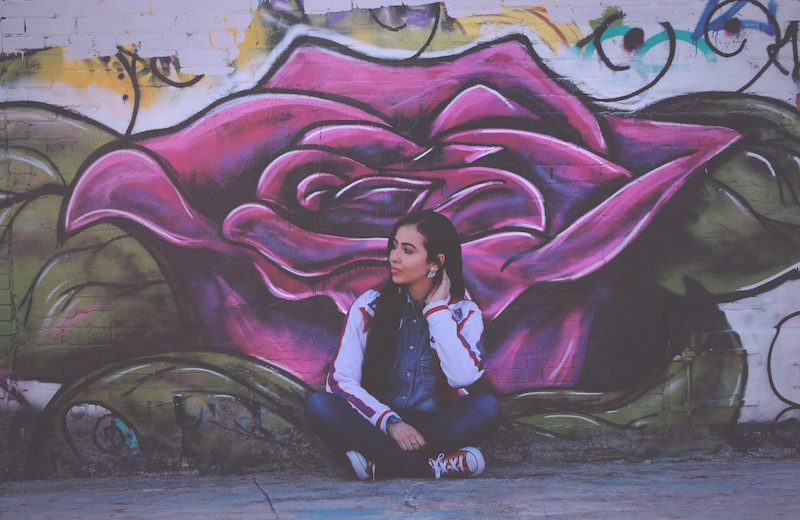Because who wants to be called “greedy”, “confused”, a “cheater” or a “liar”?
Coming out as bisexual can be a uniquely tricky experience. You risk being greeted with confusion, denial or even mockery, in a world which is still struggling to get its head round the idea that someone can be attracted to more than one gender. No wonder, then, that many bi people decide to keep their sexuality under wraps. Cue the same life of inner turmoil that most gay people experience when they are afraid to come out, but with a twist…
“I’ve been with my girlfriend for seven years, since we were both 16, and we spend a lot of time out on the gay scene,” says Ellie*, 23. “Not even my girlfriend knows about my sexuality. She’d probably be pretty unhappy about it. I hear her and her friends ranting about bi girls all the time and sometimes I join in. I just don’t want them to suspect anything.” Ellie had only ever kissed boys before she met her current partner. “I thought when I got with her that I must be a lesbian now. Everyone else seemed to assume I’d been one all along and was just hiding it. But I still feel attracted to men. It wasn’t just a ‘phase’. I’m bisexual.”
Sarah, 28, and her husband are living with her mother-in-law, who doesn’t know she’s bi.
“Not long after I moved in my husband mentioned that someone was bi and she went on a huge rant about how she doesn’t understand it. The usual things: ‘Bi people are selfish. They sleep around. They are disgusting.’” Sarah and her husband are terrified about the consequences of his mother discovering Sarah’s sexuality. “My husband is very accepting of me being bi. He even goes to Pride with me. He hates how his mom treats me and has confronted her about other issues. But we are both scared she will kick me out for this. We are trying to find our own place.”
Jay*, 34, has been single for 10 years and her friends and family are unaware that she is bi.
“I often wonder if my long period of celibacy is down to my shame at being bisexual,” she sighs. “I’ve only ever had one relationship, with a man, and it ended when I told him I also felt attracted to women. I didn’t ask for an open relationship, I didn’t cheat, but he was still furious. His shouts of ‘You’re not normal!’ will probably echo in my ears forever. I’m just glad he didn’t tell anyone I know why we split up.” Joyce received counseling after she split with her ex but was too afraid to even tell the counselor the truth. “It’s difficult to email you the answers to these questions,” she tells Curve. “Let alone look a person in the eye and admit it.”
“My family has always been the sort to hide away queerness as something shameful,” explains Hannah, 28. Indeed, despite the fact that her great uncle was openly gay, Hannah didn’t realize this until she reached her teens. “He was never really discussed and his partner certainly wasn’t referred to as such. And there have been the usual derogatory, disbelieving comments when bisexuality comes up – it’s a phase, that’s just silly, they’re young and don’t know what they want, etc.” Hannah has introduced her parents to male partners and even a trans partner. “At the time they passed as male, however. If I were to get serious with a woman, I’d be more pushed to confront my family’s prejudices. As it is, I’m outnumbered and know I’m not going to win any arguments while with a male partner.”
The stigma attached to being bisexual remains strong. Many still cleave to the idea that it’s a coward’s way of coming out as gay, mistakenly believing that “straight privilege” is actually a thing and that saying you’re bi is easier than saying you are exclusively attracted to the same sex. Either this, or they think that it’s a gimmick designed to titillate boyfriends and not a valid identity. It’s sadly ironic that it can take living a lie to avoid being called a liar.
*Some names have been changed
